The year in review: 2020
By Dan Howdle | Tuesday, December 22nd 2020
As I write this we are now in the closing days of 2020 – a year that will no doubt be remembered in our future history as a complete stinker. The COVID pandemic has dominated headlines throughout the year and is still at this moment refusing to let up.
However, there is some reason to be optimistic. Vaccines are on the way. But even once we're on the other side of this thing, I would argue that it has changed the way we live our lives in some fundamental ways, many of which to do with how we communicate, work together and consume our entertainment.
It's time, then, to take a look back at the year – in as lighthearted way as the sombre mood permits – to examine what changed, and what does it mean for us all when things return to normal.
Streaming services overreacted
One of the earliest shake-ups to UK and European data consumption came in March, before many countries had entered lockdown, and at a time where the general consensus was that all of the hoo-har would be over within a month or two.
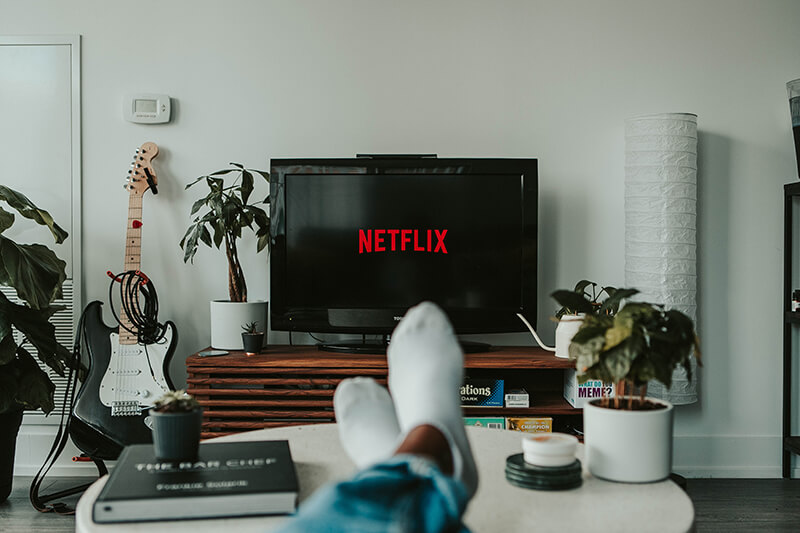
Netflix, YouTube, Amazon, Apple, BBC and others all lowered the streaming quality of their programming. Since streamed video makes up the lions share of internet traffic, the idea was to prevent our networks from becoming overloaded. Lowering the video quality of their offerings also lowers the bitrate – how much has to be pushed down the pipe.
Netflix specifically even came out and said that although it was tweaking the stream quality downwards, no one was going to notice. I hasten to add, I noticed. Programmes were suddenly unwatchable in some instances, suffering from awful compression artefacts (different types of visual noise).
Happily, all of these platforms reversed these decisions some weeks later when it became apparent that just because more of us are stuck at home, not everyone had decided to stream UHD 4K shows to four televisions 24/7. UK networks coped just fine in actual fact, which is more than can be said regarding the impact of the pandemic on network speeds in many other countries around the world.
The death of cinemas and the birth or 'Premium Rental'
With the pandemic closing cinemas all over the world – many of which having suffered such financial ruin as a result they will never reopen – the movie industry has had to look for other ways to find profit in films either scheduled and ready for release, or some way into their production.
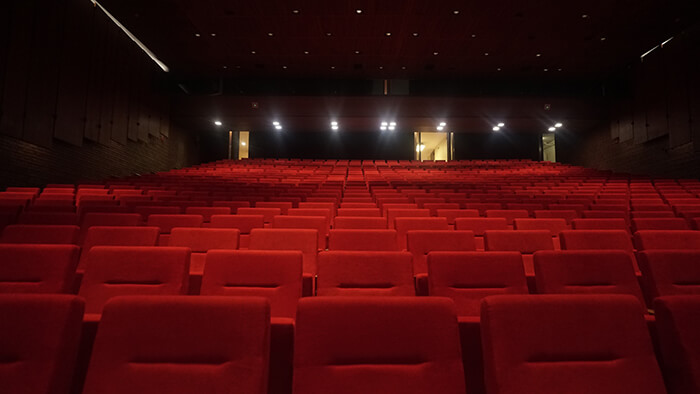
As such there have been various attempts to offer new movies, which should be showing in cinemas on something called 'Premium rental'. In the UK, this has meant films like The Invisible Man, The Way Back, Trolls World Tour and a host of others have been available to watch on the likes of iTunes and Amazon, but at some £15-16 for a 48-hour rental. Disney, likewise, attempted to test the water with its live-action version of Mulan, asking for an eye-watering £19.99 just to rent it.
The results have varied. Many have found what is essentially the cost of a new blu-ray hard to stomach for a film you only get to watch once (or more if you want to watch it multiple times within the given window). But the way the movie studios see it is you're going to pay that sort of money to see it on the big screen anyway, and with premium rental any number of people can watch it with you at no extra cost.
I would argue, though, that the reason many are prepared to spend £50-60 taking the family to the cinema is for that big-screen, big sound experience. And that it's maybe not such great value for money if you're watching your premium rental on your own on a 40-inch TV.
Still, you can't argue with the success some of these experiments have enjoyed. The Invisible Man, for example, made 2.8m on premium rental, against a production budget of just m. But, you still have to wonder whether a mega-budget blockbuster could make a profit under the same circumstances.
Like many of the changes to the way we consume online content forced upon us by the pandemic, it looks like premium rental is here to stay. In the United States, streaming service HBO Max has announced it will be screening all of 2021's Warner Brothers releases at the same time they hit cinemas, presumably on a premium rental basis. Welcome to the new future of film. Maybe it's time to buy that 85-inch TV you've always wanted?
5G-men everywhere
If there ever were to be declared such a thing, certainly 2020 would be the year of 5G. It was the year that saw the release of 5G handsets from all the major players. Including Apple, which had held back on the technology competitors had leapt on previously.
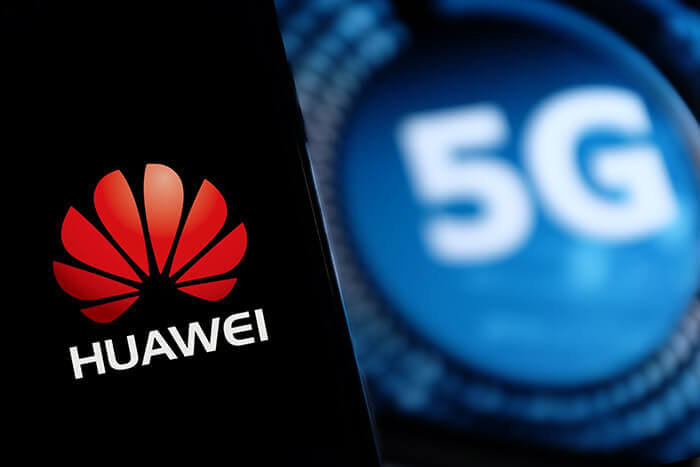
Meanwhile in the UK, 5G rollout has continued apace, in spite of a variety of setbacks. Politically, the source of much of our 5G infrastructure was kicked from pillar to post as the Government couldn't decide whether installing equipment manufactured by China's Huawei was a security risk or not. In the United States, security experts in its current administration turned up the heat by hinting that use of Huawei technology in our networks could and likely would result in a limiting of shared intelligence.
Of course, much like 4G, hopes are pinned on new network technology to address deficiencies in connectivity in remote or hard to reach parts of the UK. And, much like 4G, soon after comes the realisation that the very first people to revel in the high speeds offered by 5G will be those who already have the best and fastest network connections.
I mean, sure, you could build a 5G mast to serve three small hamlets in the Scottish Highlands, but no one is going to. Because that's simply not enough customers to pay for it. Isn't capitalism delightful?
It would be remiss of me to leave this section on 5G without at least mentioning the crazy conspiracy theories linking 5G to COVID-19 infection. It is, of course, scientifically impossible to spread a virus via a phone mast. There's also the small and inconvenient fact that while faster, from a functional point of view a 5G network isn't doing much different to a 4G network. Or a 3G network. It's really all about frequency bands and bandwidth. It is, and remains, one of the nuttiest conspiracy theories I've personally ever come across.
The rise and rise of Zoom
Though the effects of the pandemic have been catastrophic in so many ways, things could have been considerably worse had it occurred 30 years ago. Gone would have been the opportunity for a proportion of the UK workforce to work from home, leading to a far larger number on extended furlough or simply laid off.
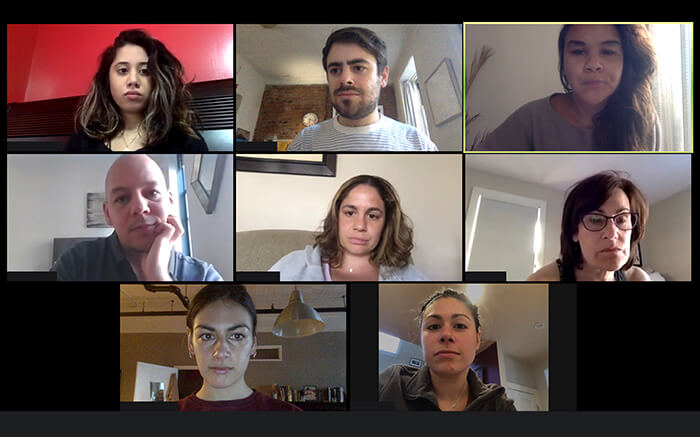
The ability for many types of office worker, company permitting, to simply lift up their desktop computer and take it home is entirely down to the network connectivity we all enjoy. For most of us, that's our home broadband package. And then there came the rise of Zoom.
Most of us wouldn't have even heard of Zoom prior to the pandemic. But the video conferencing app rose fast in the collective consciousness when it became the dominant means for companies with home working employees to stay in touch. And it would be fair to say that just about every potential embarrassment that could feasibly be caused by your coworkers having a window into your home has been ticked off that list.
From the rather innocent and amusing filters that somehow get activated, turning your boss or your teacher into a space alien or a potato, to people typing 'I hate this' to a sympathetic coworker, only to discover they just sent it to everyone in the company.
Nevertheless, many companies, including some notable giants, having been forced by the pandemic to try out home working have realised it works and have no plans to return to office working even when all of this has blown over. I would argue that 2020 has seen a fundamental change to the way we live and work, and that is going to be with us from here on in.
Hell, but no handbasket
Another notable change in internet usage during 2020 has been the way we shop online. Or, more to the point, the amount we shop online. If there are any real winners from the global events of 2020 it's been online retail. Faced with boredom and a decreased desire or ability to leave the house, it seems we have all turned to the likes of Amazon to feed our shopaholism.

Record sales figures, and profits, from Amazon and ilk in 2020 are a reflection of our elevated use of online shopping, which continues to rise year on year, but thanks to the events of 2020, have accelerated.
Supermarkets were inundated this year by more online delivery orders than they could possible manage. Some supermarkets were offering delivery times weeks or even months away. It is fair to say that they were ill-equipped for the unprecedented demand for online shopping that would be caused by the COVID crisis.
The Gig economy
At the end of 2019 the government made a promise that it would roll out 'full fibre' to every household in the UK by 2025. Now, before you say 'Hang on a minute, I already have fibre', you likely do not have full fibre.
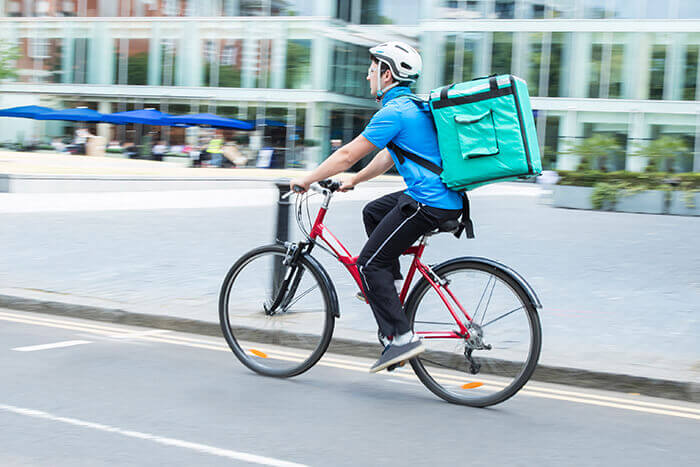
The ubiquitous form of fibre broadband – the one almost all of us have – is known as FTTC, or fibre to the cabinet. This means that fibre optic cables, which are potentially hundreds of times faster than copper cables, run only as far as the cabinet on the street. The so-called 'last mile' – the span between the cabinet and your home – is copper in most cases, limiting the maximum speed that can be delivered.
Full fibre or FTTH (fibre to the home), is 100% fibre optic cable all the way to your home, meaning it can deliver incredibly fast speeds – right now, most commonly one gigabit, or 1,000Mbps. In the future, those same cables could deliver speeds many times faster even than that.
Naturally then, for the sake of future-proofing, the government wants to roll full fibre to everyone. Not least because many European countries are much further along than we are in doing just that. In Sweden, for example, you can get 10Gbps (10,000Mbps) broadband for around £40 a month. So while your broadband may be satisfactory, it is beyond doubt that we are behind the curve.
But of course, governments have a habit of announcing things that sound good, but that have no real basis in reality. The commitment to get full fibre to everyone by 2025 was widely derided as unfeasible and unworkable, and the government later retracted its promise at the start of this year, downgrading it to 85% coverage by 2025. However, just at the time this blog was being written, even that commitment has now been blasted as completely unworkable by the Commons Digital, Culture, Media and Sport Committee.
Closer to home
Here at Cable.co.uk, 2020 saw us undertake four major global research studies, compared to our usual three. As usual, our global study into the cost of 1GB of mobile data was released back in May, demonstrating once again that while things continue to get cheaper for those who can most afford it, they remain expensive for those who can't.
This was closely followed by our annual look at global broadband speeds in September. This year we covered 221 countries, the most ever since we began tracking this in 2017. And finally, this month (December) we released our final piece of research for 2020 – the price of broadband in 211 countries.
2020 has been a hell of a year for just about every industry and sector. But I would argue it has also fundamentally changed the way we run our daily lives, consume entertainment, live and work together in 2020. And those changes are here to stay. Here's to a better 2021. Cheers!
Cable.co.uk newsletter
Our newsletter is packed full of tips and advice, the latest offers and exclusive deals you won't find anywhere else.
Sign up now